
Decades later, Gregory Maguire gave her an origin story, introducing her as Elphaba in his 1995 novel Wicked. That, in turn, was adapted into a hit Broadway musical in 2003-one of the most lucrative and longest running. Now, Elphaba's story is coming to the big screen with director Jon M. Chu's two-part adaptation, starring Cynthia Erivo as Elphaba and Ariana Grande as her perkier counterpart Glinda. The first installment arrives in theaters on Nov. 22.
Wicked is much more than a simple origin story. Told through music and lyrics by the Oscar-winning composer Stephen Schwartz, it explores love, betrayal, and heartbreak as Elphaba navigates her complex relationship with the future Glinda the Good. Schwartz, whose other musical credits include Godspell and Pippin, has been involved with Wicked since its inception onstage. Countless vocalists have interpreted these songs, on Broadway and on tours around the world, but the film brings new opportunities to dive even deeper into the world of Oz. That meant some songs were expanded or restructured-a challenge that Schwartz was excited to tackle with his collaborators.
TIME spoke to Schwartz about key songs in Wicked, from Elphaba's first big number to the dramatic cliffhanger, from their origins to how they translate onscreen.
"The Wizard and I"
Wicked's third song follows Elphaba as she realizes her life is about to change. Madame Morrible (Oscar winner Michelle Yeoh in the movie), the headmistress of Shiz University, has seen Elphaba's magical talents, and announces that she will write to the Wizard so the two can meet. This is perhaps the first time Elphaba is noticed for something that doesn't have to do with the electric green color of her skin. It's one of the most emotional moments in the show as Elphaba stands alone in the middle of the stage and sings.
This story is from the November 25, 2024 edition of Time.
Start your 7-day Magzter GOLD free trial to access thousands of curated premium stories, and 9,000+ magazines and newspapers.
Already a subscriber ? Sign In
This story is from the November 25, 2024 edition of Time.
Start your 7-day Magzter GOLD free trial to access thousands of curated premium stories, and 9,000+ magazines and newspapers.
Already a subscriber? Sign In
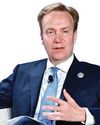
Q & A: Borge Brende
The World Economic Forum president talks with TIME editor Sam Jacobs

Q & A - Rene Haas
Arm's CEO on how his hardware is supporting the Fourth Industrial Revolution

The conflicts looming over 2025
WHEN DONALD TRUMP TOOK THE OATH OF OFFICE AS President in January 2017, his first foreign policy priority was to get tough on China. The Trump 2.0 Administration will continue that work. But when he strides back into the Oval Office in January 2025, Trump will also become responsible for U.S. management of two dangerous wars, the kinds of hot foreign policy crises he was fortunate to avoid during his first term.
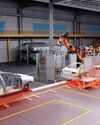
Rev Lebaredian
Nvidia's vice president of Omniverse and simulation technology on training AI-powered robots
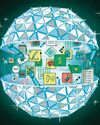
5 predictions for AI in 2025
New uses and policy questions come into focus
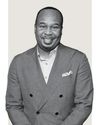
Roy Wood Jr. The comedian on his new stand-up special, the importance of working in food service, and learning from Keanu Reeves
8 QUESTIONS WITH Roy Wood Jr.
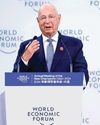
A call for global cooperation in the Intelligent Age
Cultivate wisdom along with innovation
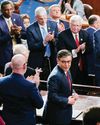
The D.C. Brief
IN THE END, THE THREAT OF A FARright revolt proved more menacing than most imagined, as Republican Mike Johnson initially came up short on Jan. 3 during the first balloting to keep him as Speaker.
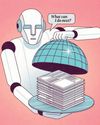
The digital labor revolution
OVER THE PAST TWO YEARS, WE'VE WITNESSED advances in AI that have captured our imaginations with unprecedented capabilities in language and ingenuity. And yet, as impressive as these developments have been, they're only the opening act. We are now entering a new era of autonomous AI agents that take action on their own and augment the work of humans. This isn't just an evolution of technology. It's a revolution that will fundamentally redefine how humans work, live, and connect with one another from this point forward.
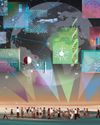
Tech we can trust
Serving humanity's best interests must be at the center of progress